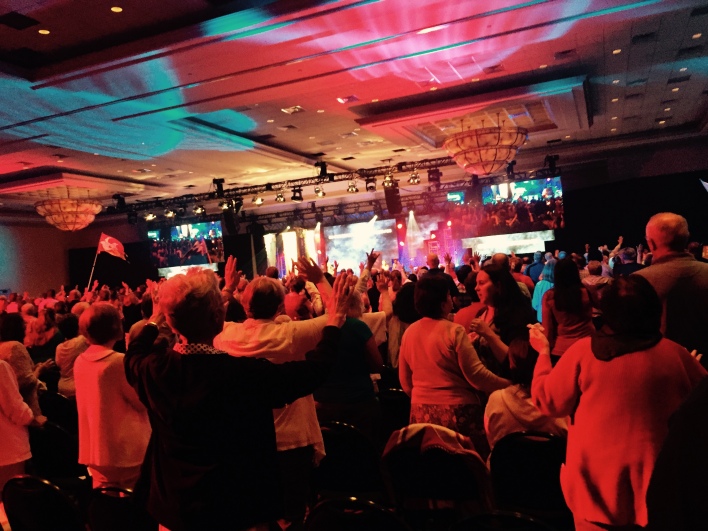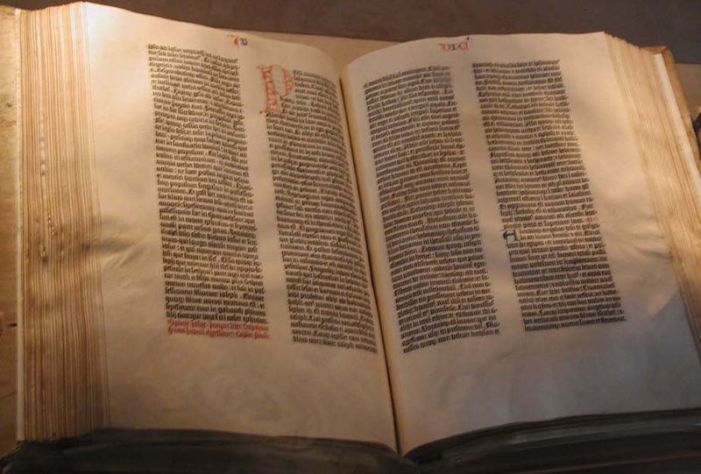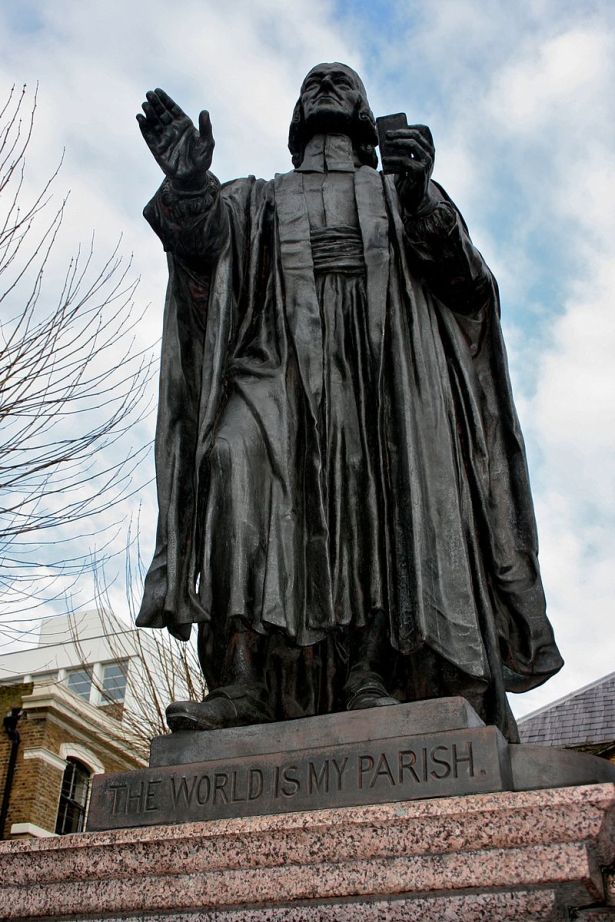Let’s face it: no one really knows what’s going to happen over the next few years within The United Methodist Church. Division? Restructuring? Fragmentation? Slow demise? Despite widespread conjecture and one or two wild conspiracy theories, your guess is as good as mine.
The Wesleyan movement, however, is much larger than The United Methodist Church. At its core this movement is dynamic, revivalistic, and evangelistic, and in many places in the world Wesleyan and Methodist communities are in the midst of revival.
I believe we can have revival here, too. Yes, even in the United States, we can have revival. In fact, I believe we will have a Wesleyan revival in which the awakening taking place in the global South will catch fire in North America. In 2015 I wrote briefly about Christians in the global South in a post called “The Next Methodism.” Since that time, I’ve thought a great deal about what it might look like for that revival to come to the United States. Were this to happen, I believe it would involve four characteristics, which I’ll discuss briefly below.
These are my unscientific thoughts, simply based on observing trends both in North America and more broadly in the global church, interacting with a variety of faith communities both within and outside of the United States, and reading about the success of early Methodism. If you find them somehow objectionable, I promise to refund your money in full.
1. The Next Methodism will feed the hungry, physically and spiritually.
Physically –One of the great things about the Methodist movement is that we are socially concerned. Historically we’ve been deeply committed to providing for people in need. This is a strength of our tradition that, whatever happens next, we should continue. Feeding the poor, disaster relief, Imagine no Malaria, ministry with people with disabilities–these represent great victories for the kingdom of God.
A Wesleyan revival will inevitably involve a renewed commitment to sanctification. Part of our sanctification, among the affluence of the West, will involve greater levels of generosity. In fact, I would say, a sanctified view of money will be necessary if we are to become who God is calling us to be.
Right belief is important, but it is not enough. As Wesley put it, one can be as orthodox as the devil, and just as much a stranger as he to the true religion of the heart.
Spiritually – People are spiritually hungry, too. The problem is that they just don’t know it. Sometimes you hear people ask why revival tends to happen among the poor, rather than the well off. The reason is that the well off can afford enough “stuff” to fool themselves into thinking they’re okay. The thing is, they’re not okay. Many people we know look like they’re doing fine. Scratch beneath the surface, though, and you’ll see things are not always what they seem: substance abuse, affairs, loveless marriages, financial woes, pornography addiction, an unfulfilled sense of longing…. People in our culture are empty inside and mired in sin, and they simply don’t know it because they have enough stuff in their lives to numb the pain.
What they’re hungry for is Jesus. They may not know it, but Jesus is the only one who can satisfy them. There’s a notion, sometimes attributed to Augustine, but which probably began with Blaise Pascal, that every person has a God-shaped hole in his or her heart. We try to fill that hole with “stuff” –money, sex, success, etc., but nothing can satisfy us. Only God can bring us true fulfillment. Or as C.S. Lewis put it, “If I find in myself a desire which no experience in this world can satisfy, the most probable explanation is that I was made for another world” (Mere Christianity).

2. The Next Methodism will be Spirit-filled.
Yes, some people do break out in hives at the mere mention of “Spirit-filled” or “charismatic” Christianity. The term “charismatic,” however, simply means that God gives us gifts. These gifts are described for us in Romans 12:6-8 and 1 Corinthians 12:8-11. We shouldn’t be surprised if God gives us these gifts both in worship and the broader life of the church. In fact, we should expect them.
Manifestation of the gifts of the Spirit is one of the hallmarks of the Next Methodism as it occurs in the developing world. In places as far and wide as Cuba, Vietnam, and parts of Africa, Methodist expression is filled with expectations of signs and wonders. Not only are gifts like teaching, exhortation, and compassion on display, but also prophecy, healing, and the discernment of spirits.
For many Christians today, God is basically a construct. “God” is a concept that gives weight to our ethical claims and our exhortations to seek social justice. The idea of God as an agent, though, simply does no heavy lifting. There is no sense of real expectation associated with prayer. The biblical God, so intricately involved in the everyday lives of men and women, is not taken seriously. The loss of the biblical God is a tremendous loss indeed.
The Next Methodism will recover the idea of God as an agent, a giver of gifts who is actively involved in our lives. I truly believe that the next generation will not be converted by plausible words of wisdom, but by a demonstration of the Spirit and power. In an age of intense cynicism, where people are constantly bombarded by advertising, where it is often difficult to tell “fake” from “real” news, where there is widespread suspicion of any system of authority, the older apologetic modes of evangelism just won’t cut it. Apologetics is still important, but it is not enough. God is going to have to show up, and I believe God will do this if we ask in faith.
3. The Next Methodism will be rooted in Scripture.
There was a reason that John Wesley and his friends at Oxford were derisively called “Bible moths” (among other things). They were rigorously committed to reading, internalizing, and living out the words of Scripture. Wesley famously called himself a “man of one book,” referring, of course, to the Bible. Though Wesley read quite broadly, no other book could compare in importance, because only one book could show us how to be saved.

I can’t speak for all Wesleyan traditions, but in the UMC, biblical literacy has not been our strong suit. We have improved somewhat, in part because of the success of the Disciple series, but on the whole we will not go down in history as a denomination that has maintained its founder’s emphasis upon Scripture.
The Bible is the one reliable guide that we have to lead us into salvation. There are things that we could derive about God just by observing the word around us. For example, we might derive that God is creative and desires order. We might reason from this that God is good. But we wouldn’t know, for example, that “God so loved the world that he gave his only Son, so that everyone who believes in him may not perish but may have eternal life” (John 3:16). Likewise, we would be unlikely to derive on our own Christ’s command to love our enemies and pray for our persecutors (Matt 5:44) or that to enter the kingdom of heaven we must become like a child (Mark 10:15). Through Scripture God reveals to us things we would never know otherwise. Most importantly, Scripture tells us the story of salvation beginning with creation, continuing through the children of Abraham, and brought to fulfillment in Jesus.
There’s one more reason, however, to pay closer attention to Scripture: You can have a revival without attention to Scripture, but it won’t last, and it will soon veer off course. Or, to paraphrase Bill Johnson, biblical illiteracy in a generation seeking miracles will make us vulnerable to false signs and wonders.
4. The Next Methodism will be truly Wesleyan.
Earlier this year I read Rod Dreher’s The Benedict Option. Its basic premise is that the culture has turned against us as Christians. We need to retreat and form tightly knit communities that will serve as arks in which we can ride out the flood of neo-paganism in Western culture. This is the best hope we have of preserving a Christian identity in the midst of a hostile world.
After I finished it, though, I thought, What if John Wesley had done that? Thankfully, he didn’t. In fact, he did the opposite. He preached in the fields and where anyone would listen. He went into the places where he knew people were hostile to him. He was attacked by mobs. He was badmouthed and ridiculed. He didn’t retreat from the culture. He confronted it. And in the midst of all this, he led a revival that swept through England and eventually became a global movement.

Photograph by Mike Peel (www.mikepeel.net).

May it be so. Out here in Oregon, the Holy Spirit will have to work extra hard to get through the dominant liberal or “Progressive” theology bias. Many, including pastors, are de facto Unitarian Universalists. Some pastors don’t believe in the physical resurrection of Jesus.